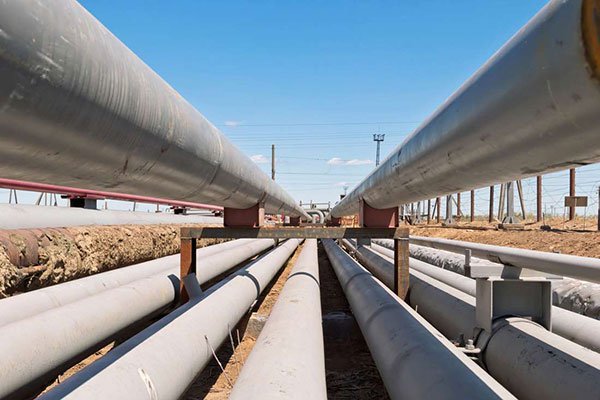An oil pipeline. Talks between Uganda and Tanzania on the pipeline connecting the two countries are ongoing. PHOTO | FILE Most issues have been agreed on; arbitration, revenue-sharing and taxes have been deferred.
EACOP is a 1,445km export pipeline that will transport crude oil from Kabaale in western Uganda to the Chongoleani peninsula near the Tanga port in Tanzania.
EACOP is expected to lead to a 60 percent increase in foreign direct investment per year for the two countries during the construction phase, by attracting investors and companies to explore the potential in the region.
Technocrats from Uganda and Tanzania are scheduled to hold another round of discussions next week to iron out three contentious issues that were deferred during negotiations of the Host Government Agreements (HGAs) for the East African Crude Oil Pipeline (EACOP).
During the January 25 meeting in Kampala, the officials are said to have agreed on most of the issues under the agreements, but arbitration, revenue sharing and taxes were deferred to a later meeting.
They agreed on registration of local companies, security of the pipeline, immigration, national content, insurance of the project, environmental obligations, investor duties, relevant standards and procedures, construction and operation of the project, as well as the required stability clauses.
The Permanent Secretary in Uganda’s Ministry of Energy Robert Kasande told The EastAfrican that the contentious issues will be discussed on February 7 in Tanzania.
Although the officials describe the negotiations as successful since they reached harmonised positions on most issues, arbitration, which is a significant component in a trade agreement, remains unresolved.
“We did not conclude discussions on the question of arbitration. The important issue is, where should it be? We have pushed it forward for further discussions,” Mr Kasande said.
EACOP is a 1,445km export pipeline that will transport crude oil from Kabaale in western Uganda to the Chongoleani peninsula near the Tanga port in Tanzania. The proposed 24-inch diameter pipeline will export 216,000 barrels of crude oil per day.
In May 2017, Tanzania and Uganda signed the Inter-Governmental Agreement (IGA) which provides a legal basis for the implementation of the EACOP project. As part of the implementation, parties are required to sign the HGAs individually because of the transboundary nature of the project.The HGA is an agreement between a host government and investors, relating to the implementation of the project in the specific territory.The EACOP will have three agreements — one between Uganda and […]
